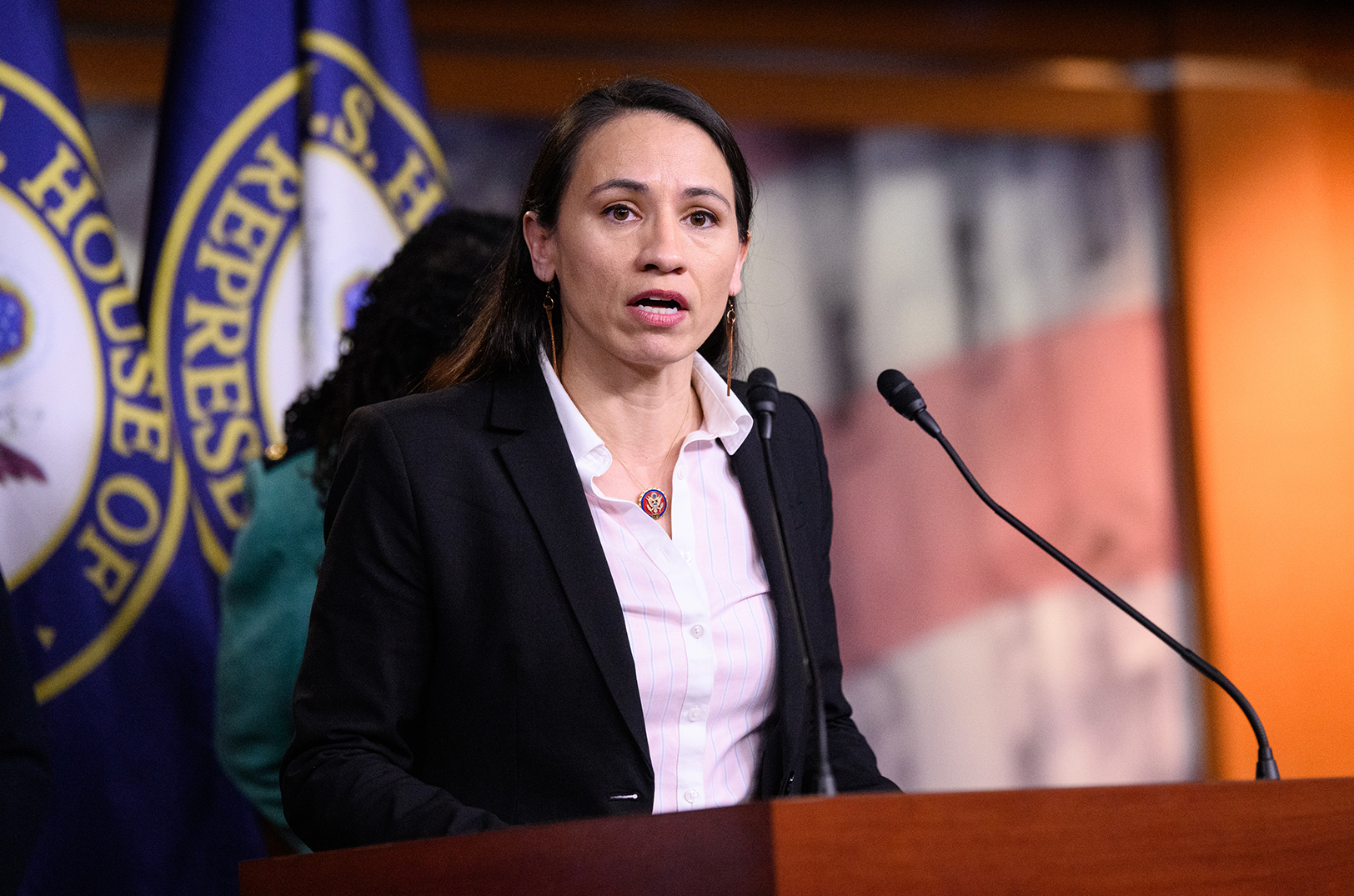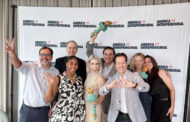A strong recovery from the COVID-19 crisis — which destroyed the businesses of many women, and particularly women of color — requires a deliberate investment in initiatives that drive and support female entrepreneurship, said Sharice Davids.
Rep. Davids’ opening remarks on pandemic’s damage
“Women are at the center of the American economy. They make up nearly half the workforce and own an estimated 42 percent of all U.S. businesses. Before the pandemic, these women-owned businesses employed 9.4 million workers and generated $1.9 trillion in revenue. Businesses owned by women of color were experiencing exponential growth. Pre-COVID, firms owned by women of color grew at 43 percent, one of the fastest rates among all groups.
“But the virus has caused a monumental setback to women’s careers, earnings, and the progress that has been made over the past half century. The pandemic has been incredibly hard for small firms, closing more businesses in 2020 than any other year on record. As of May 2021, more than 37 percent of small businesses have closed their doors. Unfortunately, women-owned businesses have borne the brunt of this economic devastation.
“Throughout the pandemic, female entrepreneurs have been more likely to close their businesses and report a significant decline in the overall health of their companies.
“COVID also dealt a severe blow to the progress women have made in the workforce. In just two months — from February to April 2020 — women lost a staggering 12.2 million jobs. Overall, women lost their jobs at rates 24 percent higher than men. Today many have yet to start working again, with 1.8 million fewer women in the workforce than pre-pandemic.”
“It’s not enough to recreate the pre-pandemic economy for female workers and business owners,” U.S. Rep. Davids, D-Kansas, said Tuesday during a Congressional hearing exploring the impact of recovery and relief efforts. “We have to build back better. By unleashing the full potential of female entrepreneurship, we can create a more equitable, balanced, and prosperous economy.”
Efforts must be geared toward helping women rebuild their businesses and getting female workers back into the workforce, added Davids, who chairs the House Small Business Subcommittee on Economic Growth, Tax and Capital Access.
As an example of a program generating results, the Congresswoman from Roeland Park pointed specifically to the Kansas City Women’s Business Center in Fairway, which serves the Greater Kansas City area and the entire State of Kansas.
The center works with more than 800 female entrepreneurs in Kansas, Davids said, proving particularly critical during the pandemic — especially in places like Overland Park where about 40 percent of businesses are owned by women.
But the center required government funding to maintain those services, she emphasized, referencing outcomes of the Coronavirus Aid, Relief, and Economic Security Act, also known as the CARES Act.
“Certainly, the CARES Act was our lifeline as an organization to be able to increase our capacity,” Sherry Turner, executive director of the center, testified during Tuesday’s hearing. “With some of the CARES Act dollars, through one of our largest counties in Kansas we were able to put $13.5 million of grant money towards businesses that were less than 15 employees.”
Click here to learn more about the Women’s Business Center.
A grant from the Office of Women’s Business Ownership accounts for about 25 percent of the center’s budget, Turner added, noting additional provisions from the Women’s Business Center Improvement Act — which Davids introduced and which passed the U.S. House with bipartisan support in late 2019, but was never taken up by the U.S. Senate — would potentially double that funding and its expected impact.
Davids hopes to reintroduce the legislation this Congress since it garnered such support last time, her office told Startland News Wednesday, noting it’s become clear during the pandemic that such resources are needed to support more female entrepreneurs.
“Simply put, the pandemic was a travesty for women small business owners and their female employees,” Davids said in her opening statements Tuesday. “But disproportionate challenges are nothing new for female entrepreneurs. There have long been numerous structural obstacles facing women in areas pivotal to business success.”
Women historically have a much more difficult time obtaining the capital needed to start and run a business, she continued.
“Only about 24 percent of small business bank loans go to female entrepreneurs. When women do obtain loans, the average amount is 33 percent less than their male peers,” Davids said. “This lack of access to traditional lending forces women to rely on family connections or to self-finance their businesses. Female entrepreneurs also have less access to resources and support systems that can mean the difference between success and failure for an enterprise.”
That’s where government-funded efforts like the Women’s Business Center come into play, she said.
“There’s a strong relationship between technical assistance, confidence and a positive success rate for small firms,” Davids said. “Inadequate resources for core support programs can hurt some women entrepreneurs who need technical assistance and create more hardships for those already struggling to gain business funding.”
Click here to learn more about the Women’s Business Center Improvement Act.
Watch a clip of Sherry Turner’s testimony below.
This story is possible thanks to support from the Ewing Marion Kauffman Foundation, a private, nonpartisan foundation that seeks to build inclusive prosperity through a prepared workforce and entrepreneur-focused economic development. The Foundation works to change conditions, address root causes, and break down systemic barriers so that all people – regardless of race, gender, or geography – have the opportunity to achieve economic stability, mobility, and prosperity.
For more information, visit www.kauffman.org and connect with us at www.twitter.com/kauffmanfdn and www.facebook.com/kauffmanfdn.





































